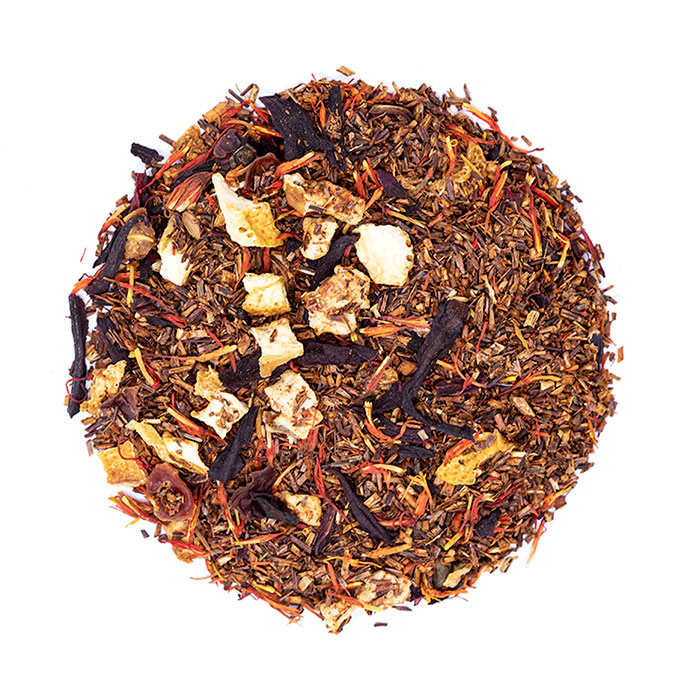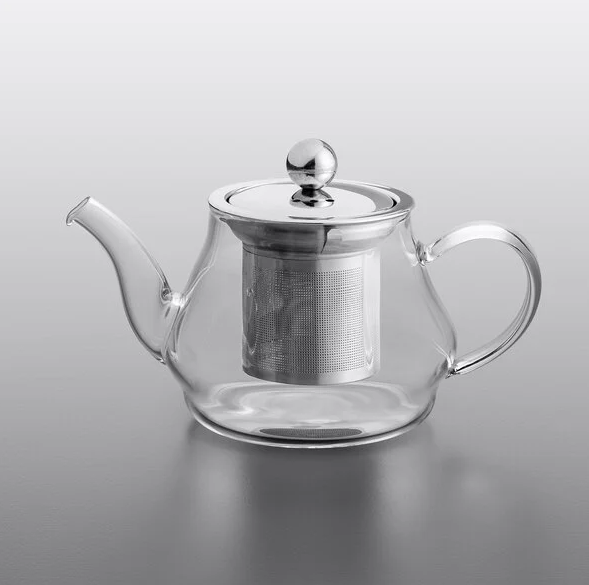Orange Tea Recipe Guide
If lemon tea sounds just too common, could orange be the alternative? While oranges may be more popular for juicing than making homemade tea, once you try this delicious juicy treat you will never want to spend winters without it.

What is orange tea?
Orange tea is tea made with juice or peel of orange fruit–Citrus sinensis. Many tea blends contain citrus peel, usually the most aromatic part of any citrus fruit. Peel can add a delicious, sweet, sharp and tangy note to many herbal and real tea blends. On the other hand, orange juice is great for adding to homemade tea recipes and is less zesty and sweeter than lemon juice. Orange tea can be made either by steeping the orange peel in hot water or by adding orange juice to other teas. Today, dried orange peel is both common and popular ingredient and it’s available from many shops. Sugared orange peel is considered a delicacy in some countries and may be used for making tea as well.What does it taste like?
Orange tea tastes like a cup of hot orange juice. If you make your orange tea using a freshly squeezed juice, it will be sweeter, zestier and juicier than orange peel tea. Use freshly squeezed juice that contains natural sugars only. On the other hand, orange peel tea may be more aromatic, but sometimes more bitter too. That’s because orange peel contains tannins. If you are using orange peel instead of orange juice, try not to overbrew your tea.How to Make Orange Tea
To make orange tea, you will need either orange peel or orange juice. We recommend trying both to see which one you like the most.Iced Orange Tea
Oranges may be seasonal winter fruits, but they make for a delicious iced summer drink too. To make orange iced tea use orange peel, black tea and sugar. If you want a caffeine free drink, replace regular black tea with a decaf tea or use pure rooibos tea instead. If you are using black tea, both Indian and Ceylon black teas are a wonderful choice. Teas with smaller broken leaves will usually infuse into a stronger and bolder cup, better for diluting with a lot of ice. Feel free to replace regular dried orange peel with sugared orange peel.
Blood Orange herbal tea with rooibos
Ingredients:
- 2 spoons of black tea leaves
- 150 ml of boiling water
- 1 teaspoon of dried orange peel pieces
- 1-2 teaspoons of light honey
- Ice
- Bring water to a boil.
- Steep tea leaves together with orange peel in hot water for 5 minutes. The longer you steep, the strong the flavor you will get. However, some orange peel may infuse into a bitter tea.
- Fill the glass with ice.
- Strain the tea into the glass.
- Add honey and stir.
Hot Orange Tea
If you need a juicy energy boosting treat for cool winter afternoons, hot orange tea is a great choice. It’s very easy to make and you can use any black tea at hand. Use freshly squeezed orange juice rather than commercially available juices. It may provide not only a better taste, but more benefits and less sugar and preservatives as well. Which tea to use? You can use any tea, but try it with Earl Grey, black tea scented with essential oil from bergamot orange. Ingredients:- 1 heaped teaspoon of Simple Earl Grey tea leaves
- 1 big orange
- 100-150 ml of water
- 1-2 teaspoon of honey
- Freshly grated orange peel – optional
- Squeeze the juice from one bigger orange.
- Strain it through a cheesecloth to remove the pulp.
- In a small saucepan, add water, orange juice and black tea leaves.
- Bring it to a boil, then reduce heat to low and let it simmer for 5 minutes.
- Turn off the heat and strain the tea.
- Add honey and serve.
Benefits of Drinking
Benefits of your orange tea will depend on which type of tea and which part of orange you are using. Both orange peel and orange juice may provide numerous benefits. Studies suggest that orange peel may provide antioxidant, anti microbial,[1] anti inflammatory and anticancer activity and help protect the brain and heart[2].Caffeine Content
Orange tea can contain caffeine. If you are making it with real tea leaves such as green or black tea, it will always contain caffeine. If your orange tea is made with herbal teas such as rooibos, it will be caffeine free. Each tea has a different amount of caffeine, but expect less caffeine than in a regular cup of coffee.Disclaimer: This article is for informational purposes only. It’s not intended to replace medical advice, diagnosis or treatment. Every person is different and may react to different herbs and teas differently. Never use teas or herbs to treat serious medical conditions on your own. Always seek professional medical advice before choosing home remedies.
References:
[1] https://www.researchgate.net/publication/319870685_The_use_of_orange_Citrus_sinensis_peel_as_antimicrobial_and_anti-oxidant_agents [2] https://www.ncbi.nlm.nih.gov/pmc/articles/PMC4690266/
More from:
SLL



Leave a comment